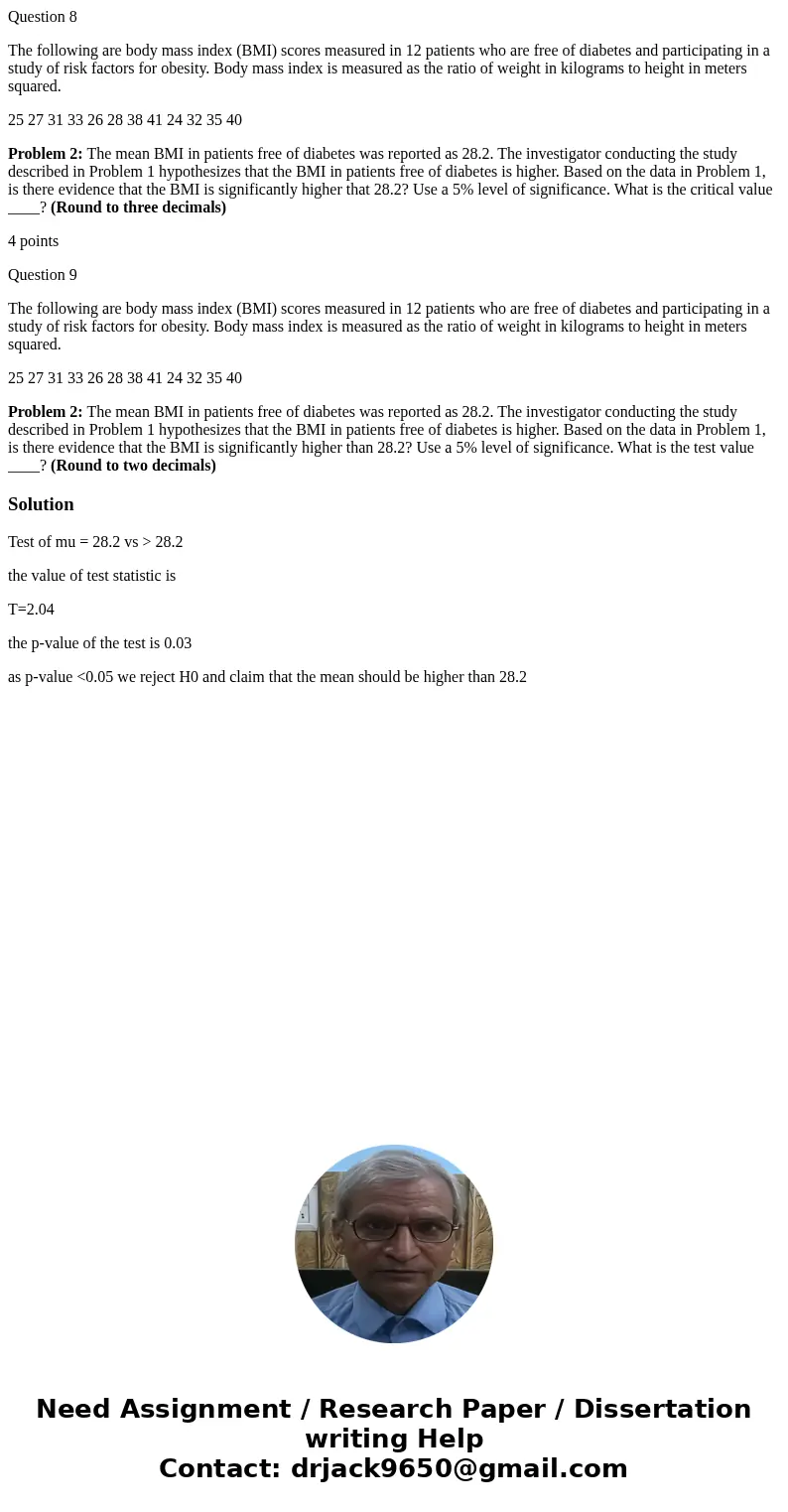Question 8 The following are body mass index BMI scores meas
Question 8
The following are body mass index (BMI) scores measured in 12 patients who are free of diabetes and participating in a study of risk factors for obesity. Body mass index is measured as the ratio of weight in kilograms to height in meters squared.
25 27 31 33 26 28 38 41 24 32 35 40
Problem 2: The mean BMI in patients free of diabetes was reported as 28.2. The investigator conducting the study described in Problem 1 hypothesizes that the BMI in patients free of diabetes is higher. Based on the data in Problem 1, is there evidence that the BMI is significantly higher that 28.2? Use a 5% level of significance. What is the critical value ____? (Round to three decimals)
4 points
Question 9
The following are body mass index (BMI) scores measured in 12 patients who are free of diabetes and participating in a study of risk factors for obesity. Body mass index is measured as the ratio of weight in kilograms to height in meters squared.
25 27 31 33 26 28 38 41 24 32 35 40
Problem 2: The mean BMI in patients free of diabetes was reported as 28.2. The investigator conducting the study described in Problem 1 hypothesizes that the BMI in patients free of diabetes is higher. Based on the data in Problem 1, is there evidence that the BMI is significantly higher than 28.2? Use a 5% level of significance. What is the test value ____? (Round to two decimals)
Solution
Test of mu = 28.2 vs > 28.2
the value of test statistic is
T=2.04
the p-value of the test is 0.03
as p-value <0.05 we reject H0 and claim that the mean should be higher than 28.2

 Homework Sourse
Homework Sourse